On Liberty and Freedom: A Dialogue
by Lucas Holt
Filed under Man

I travelled down to New York Harbor to meet my dear friend Franz. No sooner had I arrived at our meeting place than when the sun began to emerge from its hiding place and light up the sky above and the waters beneath. As it leapt up from its abode its warm rays stretched out and rested on the cold and fragile buildings of the city. There is something about a sunrise that gives one hope. Soon I noticed Franz approaching in the distance. “Hello, friend!” he shouted from afar. “Good... Read More
Atheism, Prot-Enlight, and the Schizophrenic Republic
by Timothy Gordon
Filed under Atheism, Natural Law

Last week, I wrote about the longstanding Catholic drive to reinterpret the philosophy of Plato as realist. In actuality, Aristotle’s philosophy perfected Plato’s by connecting the material to the formal world—two separated domains which, in Plato, remain wholly alien to one another. Accordingly, it is quite a “stretcher,” I suggested, when Catholics talk about Plato as a realist. Any philosophy which divorces the material and the formal qualifies as anti-realism, because matter’s... Read More
Modern Atheism: Dragging Plato Along Aristotle’s Coattails
by Timothy Gordon
Filed under Atheism
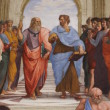
In today's Catholic Church, Platonism and Aristotelianism are often considered equal. It is a dangerous error that hails all the way back to the first neo-Platonists in the third century. Simply put, the true description of reality, rightly recognized by the Catholic Church, is that account given by Aristotle (not Plato!) and confirmed by Thomas Aquinas. But too many Catholics speak of Plato and Aristotle together, as if their metaphysics are identical. They are in fact nowhere near this.... Read More
Did the Fall of Man Really Occur?
by Steven Rummelsburg
Filed under Man
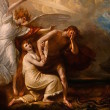
The Catholic Church asserts the truth that mankind has suffered a privation of grace as a consequence of disobedience. By the sin of our first parents we are saddled until the end of time with the defect of Original Sin. Man is fallen. To be born into this world is to be burdened with a life of toil, trial and torment. Adam and Eve were in a state of grace in the Garden of Eden before succumbing to temptation. The doctrine of the fall is a most obvious proposition expounded upon by nearly... Read More
A Bad Case Against Classical Theism
by Thomas M. Cothran
Filed under The Existence of God
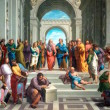
NOTE: This is the second of a three part series on classical theism by theologian Thomas M. Cothran. Read part one here. Stephen Webb not only misstates what classical theists believe, he misstates why they believe it. Consider, by way of example, Webb’s review of David Bentley Hart’s The Experience of God. Webb claims that Hart infers “the main tenets of classical theism … from the deceptively simple premise of God’s immateriality.” Webb attributes a similar line of... Read More
Marriage, Natural Law, and the Truth of Sexual Ethics
by Robert P. George
Filed under Sexuality

Gary Gutting is a Notre Dame philosophy professor who thinks that what counts about arguments is whether they “work.” And so his complaint against natural-law arguments for Catholic teachings about sex is that they “no longer work (if they ever did)”. His New York Times “Opinionator” post of March 12th (“Unraveling the Church Ban on Gay Sex”) names us as two people who are “still” exponents of such arguments. For us what counts about an argument is whether it is sound,... Read More
Seven Proofs for the Natural Immortality of the Human Soul
by Tim Staples
Filed under Anthropology
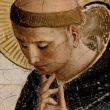
The late Dr. Antony Flew—perhaps the greatest atheist thinker of the last hundred years—came to faith in God largely through his studies in philosophy and, most especially, science, as he recounted in his book written with Roy Abraham Varghese, There is a God: How the World's Most Notorious Atheist Changed His Mind. It was in 2004 that Dr. Flew rocked the world with his confession that he had come to believe in God. He made clear that he accepted deism, and not the God... Read More
Know Thyself: The Insolvable Puzzle
by Dr. Peter Kreeft
Filed under Anthropology
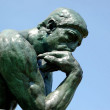
Though agape [i.e. selfless love] comes from God, it resides in our free will as human beings. Its home is not the body or the feelings, or even the intellect, but the will. True, the intellect has to work with it. But it is not the intellect that loves, any more than it is the light in the operating room that performs the surgery.Agape may be aided by seeing, accompanied by feeling, and accomplished by doing, but it is essentially an act of choosing, an act of free will. If God exists,... Read More
Why Superman Is Not the Answer
by Bishop Robert Barron
Filed under Movies/TV

I didn't really care for the latest cinematic iteration of the Superman myth. Like way too many movies today, it was made for the generation that came of age with video games and MTV and their constant, irritatingly frenetic action. When the CGI whiz-bang stuff kicks in, I just check out, and Man of Steel is about three-quarters whiz-bang. However, there is a theme in this film that is worthy of some reflection, namely the tension between individual autonomy and a state-controlled... Read More
What Is the Soul?
by Matthew Becklo
Filed under Anthropology
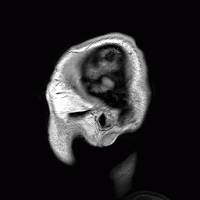
"For the world is broken, sundered, busted down the middle, self ripped from self and man pasted back together as mythical monster, half angel, half beast, but no man..." — Walker Percy, Love in the Ruins Last year, I found myself unexpectedly marveling at an album by Tom “It's Not Unusual” Jones, which featured covers of songs by Tom Waits, Paul Simon, and The Low Anthem. One track, "Soul of a Man," revived a bluesy 1930 song by Blind Willie Johnson that asks one my favorite philosophical... Read More






